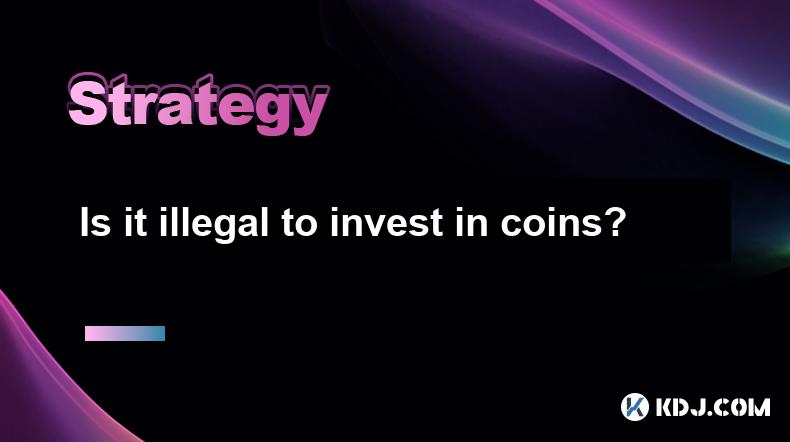-
 Bitcoin
Bitcoin $107,323.9971
-0.42% -
 Ethereum
Ethereum $2,442.7415
-1.58% -
 Tether USDt
Tether USDt $1.0005
0.00% -
 XRP
XRP $2.0902
-4.49% -
 BNB
BNB $645.3561
-0.33% -
 Solana
Solana $140.8832
-2.81% -
 USDC
USDC $0.9999
0.01% -
 TRON
TRON $0.2713
0.17% -
 Dogecoin
Dogecoin $0.1611
-2.35% -
 Cardano
Cardano $0.5556
-2.75% -
 Hyperliquid
Hyperliquid $36.8045
-1.10% -
 Bitcoin Cash
Bitcoin Cash $494.4393
-1.23% -
 Sui
Sui $2.6406
-2.97% -
 Chainlink
Chainlink $13.0846
-1.74% -
 UNUS SED LEO
UNUS SED LEO $9.0127
0.09% -
 Avalanche
Avalanche $17.4023
-1.37% -
 Stellar
Stellar $0.2339
-3.25% -
 Toncoin
Toncoin $2.8330
-0.57% -
 Shiba Inu
Shiba Inu $0.0...01124
-3.38% -
 Litecoin
Litecoin $84.9229
-0.60% -
 Hedera
Hedera $0.1432
-3.84% -
 Monero
Monero $311.0740
-1.35% -
 Bitget Token
Bitget Token $4.6591
3.94% -
 Dai
Dai $1.0001
0.01% -
 Ethena USDe
Ethena USDe $1.0000
-0.01% -
 Polkadot
Polkadot $3.3033
-1.64% -
 Uniswap
Uniswap $6.9221
-4.55% -
 Pi
Pi $0.5546
-4.86% -
 Aave
Aave $257.5046
-1.30% -
 Pepe
Pepe $0.0...09215
-3.26%
Is it illegal to invest in coins?
Investing in coins is legal in many jurisdictions as long as investors comply with the regulatory requirements, understand the coin's legitimacy, and follow KYC and AML procedures.
Jan 10, 2025 at 09:34 pm

Key Points:
- Cryptocurrency regulations vary globally, with some countries having strict laws and others taking a more relaxed approach.
- In many jurisdictions, investing in coins is legal as long as certain guidelines are followed.
- Understanding the regulatory landscape and seeking professional advice is essential before investing in coins.
- Illegal activities such as money laundering and terrorism financing can be associated with coins.
Is it Illegal to Invest in Coins?
Investing in coins is not inherently illegal, but its legality depends on several factors, including:
Country of Residence: Regulations on coins vary significantly from country to country.
- In the United States, coins are considered securities and are subject to regulation by the Securities and Exchange Commission (SEC).
- Countries like Japan and South Korea have established comprehensive frameworks for coins and exchanges.
Type of Coin:
- Utility tokens, which provide access to a platform or service, are generally not considered securities.
- Security tokens, which represent ownership or investment, are typically subject to stricter regulations.
Compliance with Guidelines: In jurisdictions where coins are legal, investors must comply with certain guidelines, such as:
- Know-Your-Customer (KYC) and Anti-Money Laundering (AML) policies.
- Reporting and taxation obligations.
Illegal Activities: Coins have been associated with illegal activities, such as:
- Money laundering: Concealing the source of funds obtained through illegal activities.
- Terrorism financing: Providing financial support to terrorist organizations.
- Market manipulation: Influencing coin prices through fraudulent or deceptive practices.
Steps to Invest Legally:
- Research the Regulatory Landscape: Familiarize yourself with the coin laws and regulations in your jurisdiction.
- Choose a Legitimate Exchange: Select an exchange that complies with industry standards and regulatory requirements.
- Verify the Coin's Legitimacy: Conduct thorough research on the coin's project, team, and underlying technology.
- Follow KYC and AML Procedures: Provide necessary personal information and adhere to anti-money laundering protocols.
- Understand Taxation Implications: Determine the tax implications of your coin investments in your jurisdiction.
- Seek Professional Advice: Consult with a qualified financial advisor or lawyer for personalized guidance and to ensure compliance.
- Be Aware of Illegal Activities: Avoid any involvement with coins that may be associated with illicit activities.
FAQs:
Can I Invest in Coins if My Country Has No Regulation?
- In the absence of specific regulations, it is essential to exercise caution and conduct thorough research before investing.
Are All Coins Illegal?
- No, not all coins are illegal. Many coins operate legally and provide legitimate use cases.
What are the Risks of Investing in Illegal Coins?
- Legal liabilities, financial penalties, and reputational damage.
What Should I Do if I Suspect Illegal Coin Activity?
- Report it to the relevant authorities and take appropriate legal action.
How Can I Stay Informed About Coin Regulations?
- Monitor industry publications, attend conferences, and consult with experts in the field.
Disclaimer:info@kdj.com
The information provided is not trading advice. kdj.com does not assume any responsibility for any investments made based on the information provided in this article. Cryptocurrencies are highly volatile and it is highly recommended that you invest with caution after thorough research!
If you believe that the content used on this website infringes your copyright, please contact us immediately (info@kdj.com) and we will delete it promptly.
- Bitcoin Price Puzzle: Institutional Buying vs. Market Discrepancy Explained
- 2025-06-27 22:30:12
- Neo Pepe Coin ($NEOP): Certik Audit Success & Crypto Presales Heats Up
- 2025-06-27 22:30:12
- Coinbase's Bitcoin Futures Launch: A New Era for US Crypto Trading?
- 2025-06-27 22:35:11
- LUNC Price on Edge: Weekly Burn vs. Risky Pattern – What's Next?
- 2025-06-27 22:35:11
- SHIB, DOGE, and the Meme Coin Mania: What's Hot and What's Not?
- 2025-06-27 21:27:13
- Blum Token's Wild Ride: MEXC Listing, Price Crash, and the Road to Recovery
- 2025-06-27 22:42:04
Related knowledge

What are the skills of Bitcoin option hedging? Practical case sharing
Jun 24,2025 at 04:01pm
Understanding Bitcoin Option HedgingBitcoin option hedging is a risk management strategy used by traders and investors to protect their positions in the volatile cryptocurrency market. By using options, individuals can limit potential losses while retaining the opportunity for profit. In essence, it allows one to insulate against adverse price movements...

How to use the price difference between Bitcoin spot and futures? Arbitrage strategy
Jun 20,2025 at 02:56pm
Understanding Bitcoin Spot and Futures MarketsTo effectively leverage arbitrage opportunities between Bitcoin spot and futures markets, it's essential to understand the fundamental differences between these two types of markets. The spot market refers to the direct buying and selling of Bitcoin for immediate delivery at the current market price. In cont...

How to increase DeFi lending income? Strategy and risk analysis
Jun 24,2025 at 02:08pm
Understanding DeFi Lending and Its Income PotentialDeFi (Decentralized Finance) lending has emerged as a popular way to earn passive income in the cryptocurrency space. Unlike traditional banking systems, DeFi lending platforms allow users to lend their crypto assets directly to borrowers without intermediaries. The lenders earn interest based on the su...

How to operate cryptocurrency cross-market arbitrage? Practical analysis
Jun 23,2025 at 04:01am
Understanding Cryptocurrency Cross-Market ArbitrageCryptocurrency cross-market arbitrage involves taking advantage of price differences for the same digital asset across different exchanges. The core idea is to buy low on one exchange and sell high on another, capturing the profit from the discrepancy. This strategy relies heavily on real-time market da...

How to make profits from high-frequency cryptocurrency trading? Sharing core skills
Jun 19,2025 at 05:07pm
Understanding High-Frequency Cryptocurrency TradingHigh-frequency trading (HFT) in the cryptocurrency market involves executing a large number of trades at extremely fast speeds, often within milliseconds. This method relies on small price discrepancies across exchanges or within a single exchange’s order book. Traders use complex algorithms and ultra-l...

What are the methods of cryptocurrency quantitative trading? Detailed analysis
Jun 22,2025 at 11:07pm
Understanding the Core of Cryptocurrency Quantitative TradingCryptocurrency quantitative trading refers to the use of mathematical models and algorithms to execute trades in the digital asset market. Unlike traditional discretionary trading, which relies heavily on human judgment, quantitative trading leverages data-driven strategies to identify profita...

What are the skills of Bitcoin option hedging? Practical case sharing
Jun 24,2025 at 04:01pm
Understanding Bitcoin Option HedgingBitcoin option hedging is a risk management strategy used by traders and investors to protect their positions in the volatile cryptocurrency market. By using options, individuals can limit potential losses while retaining the opportunity for profit. In essence, it allows one to insulate against adverse price movements...

How to use the price difference between Bitcoin spot and futures? Arbitrage strategy
Jun 20,2025 at 02:56pm
Understanding Bitcoin Spot and Futures MarketsTo effectively leverage arbitrage opportunities between Bitcoin spot and futures markets, it's essential to understand the fundamental differences between these two types of markets. The spot market refers to the direct buying and selling of Bitcoin for immediate delivery at the current market price. In cont...

How to increase DeFi lending income? Strategy and risk analysis
Jun 24,2025 at 02:08pm
Understanding DeFi Lending and Its Income PotentialDeFi (Decentralized Finance) lending has emerged as a popular way to earn passive income in the cryptocurrency space. Unlike traditional banking systems, DeFi lending platforms allow users to lend their crypto assets directly to borrowers without intermediaries. The lenders earn interest based on the su...

How to operate cryptocurrency cross-market arbitrage? Practical analysis
Jun 23,2025 at 04:01am
Understanding Cryptocurrency Cross-Market ArbitrageCryptocurrency cross-market arbitrage involves taking advantage of price differences for the same digital asset across different exchanges. The core idea is to buy low on one exchange and sell high on another, capturing the profit from the discrepancy. This strategy relies heavily on real-time market da...

How to make profits from high-frequency cryptocurrency trading? Sharing core skills
Jun 19,2025 at 05:07pm
Understanding High-Frequency Cryptocurrency TradingHigh-frequency trading (HFT) in the cryptocurrency market involves executing a large number of trades at extremely fast speeds, often within milliseconds. This method relies on small price discrepancies across exchanges or within a single exchange’s order book. Traders use complex algorithms and ultra-l...

What are the methods of cryptocurrency quantitative trading? Detailed analysis
Jun 22,2025 at 11:07pm
Understanding the Core of Cryptocurrency Quantitative TradingCryptocurrency quantitative trading refers to the use of mathematical models and algorithms to execute trades in the digital asset market. Unlike traditional discretionary trading, which relies heavily on human judgment, quantitative trading leverages data-driven strategies to identify profita...
See all articles























































































